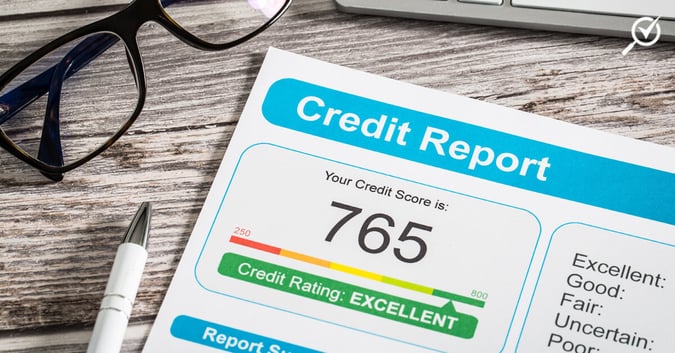It is important to keep your credit score in good shape so you can apply for loans, credit cards and get lower interest rates. Read this article to find out six bad financial decisions that can hurt your credit score.
A good credit score is a great privilege. It increases your chances of securing a loan or credit, offers improved rates on financial products, leads to wider financing options, more flexible payment periods, and may even affect your auto and homeowner premium. In other words, a good score saves you thousands of Ringgit in interest.
From a macro perspective, when citizens of a country possess better scores, it indirectly improves the state of financial inclusivity and social mobility in that country.
These benefits are given, because quite frankly, banks and lenders will prefer dealing with individuals who have good credit scores.
Since banks do not know individuals personally, they will refer to your credit score in your credit report, as it represents a financial snapshot of a person.
If you needed a quick refresher, a credit score is a three-digit number, typically between 300 and 850 that represents your creditworthiness and indicates how likely you are to repay debt.
If you want a great score, but are not sure how, we list down some of the common pitfalls people get into that stops them from getting great credit scores.
CompareHero.my spoke to AKPK financial education trainer and Deputy President of Malaysian Financial Planning Councils Dr Desmond Chong Kok Fei for this piece.
1. Overestimating your payment capability by taking on unnecessary credit
Pro tip: understand yourself and your finances, first, before committing to any loans.
“Having a ‘I think I can pay la.’ mindset is super dangerous. You can be very vulnerable and can easily fall into default,” Chong said. “The key is to not overestimate your payment capability.”
Unlike many endeavours in life that allow you the flexibility to jump in head first - one must not apply the same thought process or practice to their financial situation because one wrong move could result in severe financial backlash.
For example, don’t take out a personal loan to fund an unnecessary vacation or rack up student loans to fund your education without first laying down the pros and cons.
It is actions like these that could seriously strain your budget, making it harder for you to keep up with your monthly payments. Don’t dig your own financial grave!
Increasing your debt and the amount you owe could have a negative impact on your credit score—more so if the debt are on credit cards.
Remember: only apply for a loan or credit when you need it — if you must apply for a credit card, be mindful of your payments.
2. Only checking your credit score once in a blue moon

If you have some free time in a day, it doesn't hurt to give your credit score a little check.
You won’t know if your score is bad or good if you don’t regularly check on it, right?
Keeping track of your score is one way to know how far you have progressed and it helps you spot any issues in your score before they grow even further.
Though there is no benchmark or rule of thumb, we generally recommend checking your scores every six months. A lot can happen in the span of six months - you could have gotten several new credit cards or bought or a new home, so it would help to know where you stand on the credit score scale.
In Malaysia, different credit agencies will have different formulas to evaluate every individual’s credit score. You should not assume that your credit score will be the same across these credit agencies.
In general, here are the factors considered in credit scoring calculations.
- Payment History (45%) – whether you pay your loans on time or have missed payments in the past
- Amount Owed (20%) – the number of credit facilities and the amount owed to the banks
- Credit History Length (7%) – the amount of time you held a credit facility (credit card, or a loan)
- Credit Mix (14%) – the types of loans and credit cards you hold – secured (home, car loans) vs unsecured credit (credit cards, personal loans)
- New Credit (14%) – any approved new credit facilities in recent times
Related: Ultimate Guide To Credit Scores
3. Not paying bills (and tax) when it is due
One of the best ways to maintain a good credit score is to pay your bills on time. It sounds cliche, but it’s true.
Don’t get us wrong - we get that life happens and that sometimes, you need to prioritise other commitments and expenses which could result in late payments on your loan or credit card.
Sure, a bank or credit card company won’t show up at your door after you miss one payment, but they’re definitely taking action behind the scenes. And how your creditors respond to late payments can continue to affect you for months, and even years, to come.
On top of that, your payment history will have a large impact on your credit score, so missing even one payment could ruin and wreck your credit.
The solution? Make it a habit to pay on time. Another great tip is to know the consequences of a late or missed credit card payment - that should be enough motivation to make you take extra effort to pay on time. On top of that, not providing the right tax information could affect your credit score.
Here are some of the consequences of late payment:
- Increased interest rate
- Bad credit score
- Late payment charges
- Unwanted calls and visitors
- The dreaded B word
Related: What Happens If You Make Late Credit Card Payments
4. Making it a habit to pay the minimum payment only

Why pay the bare minimum, when you have the capacity to pay in full?
When you take full ownership over something, you will try to give your level best in whatever it requires. In this case, paying your monthly payment consistently, and more than just the bare minimum, is crucial for your credit score.
“People often forget that their payments will impact their future borrowings and affect their reports,” Chong said.
Not only will late payments affect your credit score, Chong said, but minimum payments is also not the most strategic or sustainable idea.
It’s great that you are at least paying the minimum expected of your monthly payment. But even so, it can be costly to you in the long run, especially if you are not the kind who is careful or mindful of how you manage your credit.
When you only commit to minimum payments every month, you are essentially carrying a high balance on your credit card, which could increase your credit utilisation ratio – the ratio of your total credit to your total debt, but is usually expressed as a percentage. Credit reporting agencies will usually take this ratio into account as part of the process to evaluate your credit score.
As we have mentioned before, it is pertinent that you keep your debt utilisation ratio below 30% in order to achieve a good credit score. So if your combined credit limit is RM10,000, you should have a debt utilisation of no more than RM3,000.
Related: How Credit Cards Can Affect Your Credit Score
Paying down your balances in full can help ensure that your credit utilisation rate is maintained at below 30% utilization is a good start.
5. Cancelling your credit card?
For many people, closing their credit card account is usually the knee-jerk reaction to reducing their debt, especially if they have a bunch of unused cards lying around. In a way, it feels like spring cleaning your finances, right?
The problem is, cancelling your credit card doesn’t do that, but the exact opposite: it severely damages your credit score.
This happens because payment history (45%) and credit history length (7%) - as we’ve mentioned in our first point, when combined, make up the bulk of your credit score, so if you’re closing a card with a good payment history, you’re also completely deleting all that hard-earned record that banks love to see.
The worst part is you can’t get back that payment history, since you can’t go back in time. So the only way to get it back is to simply build it up again from scratch.
When you cancel a card, you’ll also increase your credit utilisation ratio. And as we’ve established, the lower your utilisation ratio, the better for your credit score.
6. Not practicing good financial planning
In order to maintain a good score, it’s crucial to practice sound financial planning. We can write a whole whitepaper on practicing good financial planning, but in the context of what types of mistakes to avoid to get a good credit score, we thought we could narrow it down to these few significant pointers:
a) Do not apply for more loans or credit than you can handle
Though we are not saying having multiple loans is a deal breaker, if you have more loans than you can handle, and you miss your payments, this will affect your credit score down the road.
b) Do no get a loan for unnecessary purchases
Maybe you signed up for a credit card because you need it to make an expensive lifestyle purchase. Before you do, consider whether it is necessary.
c) Do not provide false information about your financial status
Be thorough because even the smallest of errors in your credit report could affect your credit score.
d) Being a guarantor
You will need to rely on their payment capability, which is something that is out of your control.
e) Taking up loans to pay off loans
Unless you know how to properly navigate and manage this, taking a loan to pay off a downpayment is not a wise decision.
f) Being too dependent on future earnings
When budgeting, it’s best not to be over-dependent on future earnings to avoid miscalculations. For example, buying a newly-launched house just because you have extra cash on hand.
Building credit is a long game, and you are bound to fall sometimes
Some of us may be luckier than others to get good credit scores fairly early in our lives. For others, it can take years to get our credit score to be where we want it to be.
But like a muscle that needs constant exercising and workouts, credit takes time to build - you surely can’t do it overnight - not even in a month's time either.
Instead, here’s what you can do: take small, but consistent steps of paying your bills on time, avoiding unnecessary debt and keeping your credit card balances low.
Take it from us, the best way to avoid mistakes is to develop good habits that can help you avoid those missteps. We wish you good luck in your credit journey!









.png?width=280&name=Tips%20To%20Choose%20The%20Right%20Banking%20Account%20CIMB%20(2).png)
